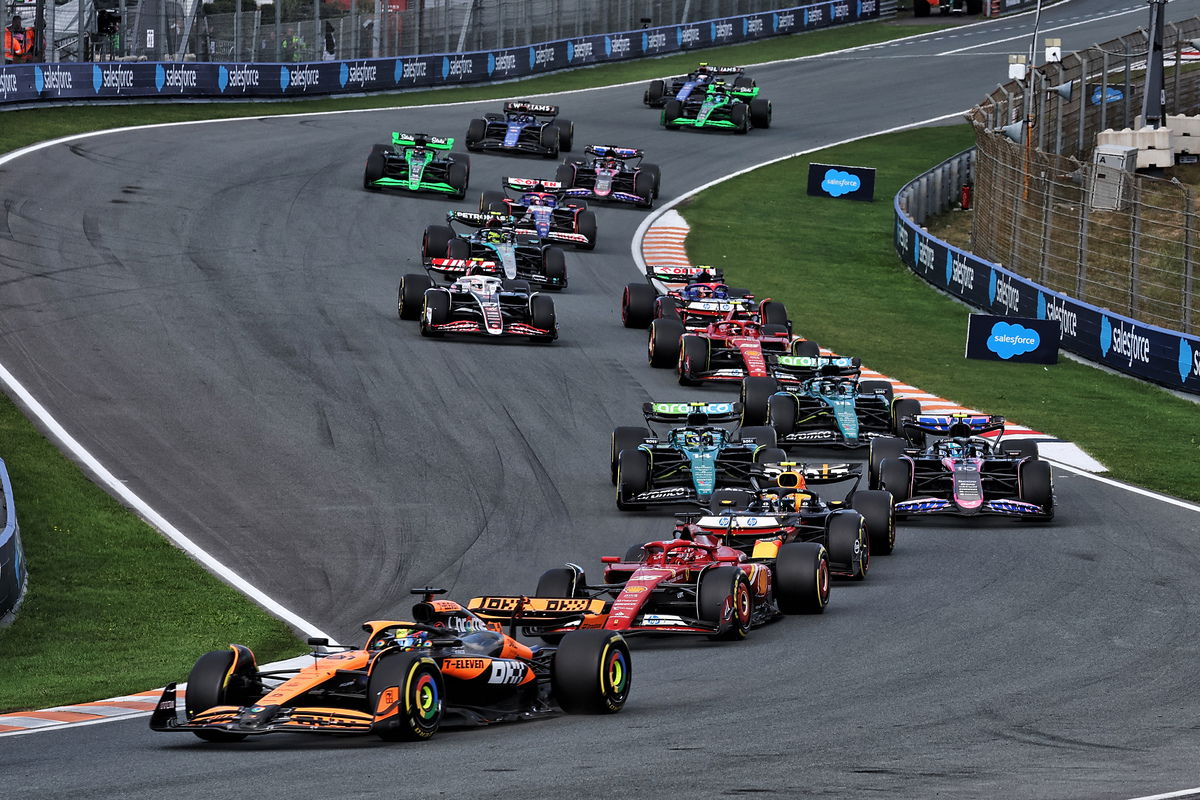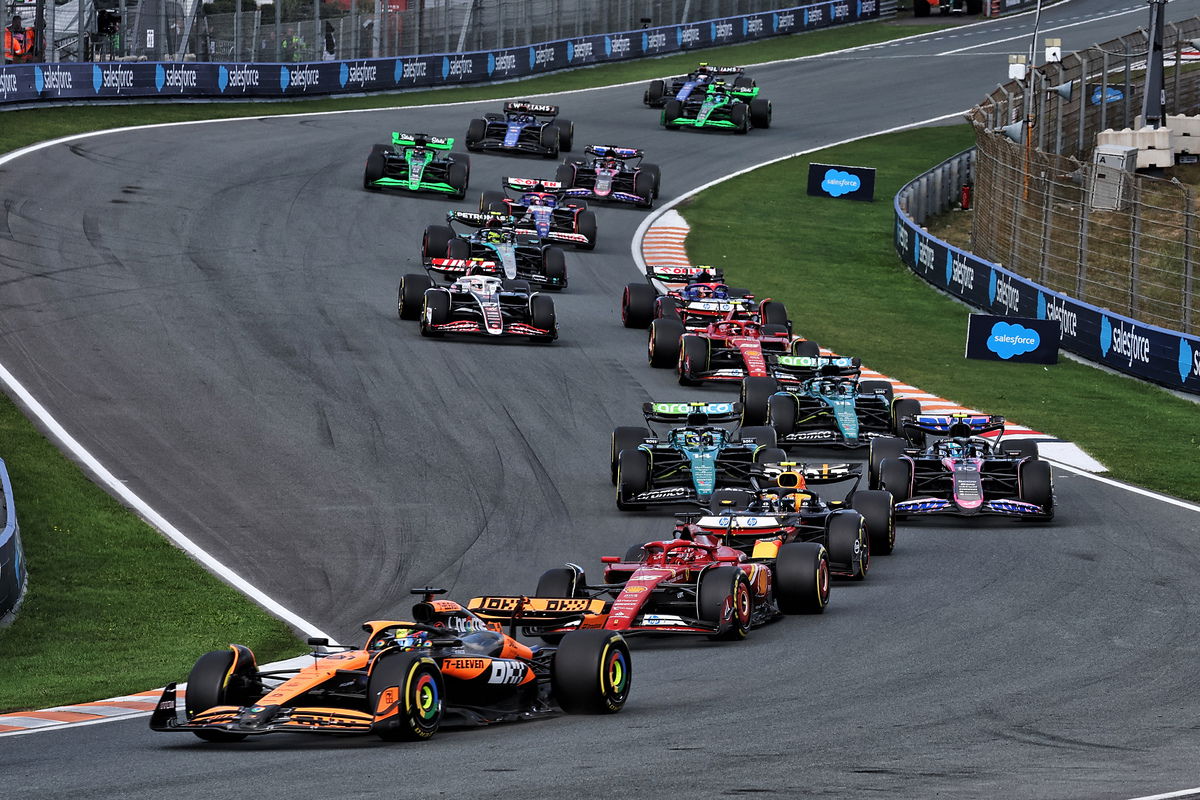

Organisers in The Netherlands have agreed a one-year contract extension that will see F1 continue in the country until 2026.
Thereafter, the event is set to disappear from the schedule.
“I am incredibly grateful for the work that the team at the Dutch Grand Prix have done in recent years,” said F1 boss Stefano Domenicali.
“They raised the bar for European Grands Prix in terms of event spectacle and entertainment, supported the development of young talent by hosting F2, F3 and our F1 Academy series, and have also pioneered sustainable solutions that have inspired our events around the world as we drive towards being Net Zero by 2030.
“All parties positively collaborated to find a solution to extend the race, with many options, including alternation or annual events on the table, and we respect the decision from the promoter to finish its amazing run in 2026.
“I want to thank all the team at the Dutch Grand Prix and the Municipality of Zandvoort who have been fantastic partners to Formula 1.”
Zandvoort first held the world championship in 1952, and was a regular feature through to the mid 1980s when it fell off the calendar.
Heavily redesigned in the decades since, its reappearance on the schedule in 2021 coincided with the rise in popularity of Max Verstappen.
Organisers have long stated its openness to being part of a rotational system of events going forward, with its fortunes heavily linked to the presence of the local favourite.
It’s currently estimated to pay around $32 million annually for the race, a figure tipped to rise incrementally for 2026.
It has long been suggested the Dutch Grand Prix could be paired with the similarly-precarious Belgian Grand Prix as a means of reducing costs while maintaining an F1 presence for both venues.
The Belgian Grand Prix is thought to only contribute around $22 million annually and is out of contract following its 2025 event.
With the Dutch GP extended for 2026, the timing falls such that it could herald the beginning of a rotational system, with Spa-Francorchamps circuit skipped in 2026 before returning for 2027 – though that is unconfirmed.
F1’s move towards rotating events is a means of reducing the lower-paying races while freeing up space on the at-capacity calendar for the likes of Thailand or Rhwanda, both of which have been linked to new events.
Together with the Belgium, the Chinese, Emilia Romagna, Las Vegas, and Mexico City Grands Prix events are also set to expire in 2025.





















Discussion about this post